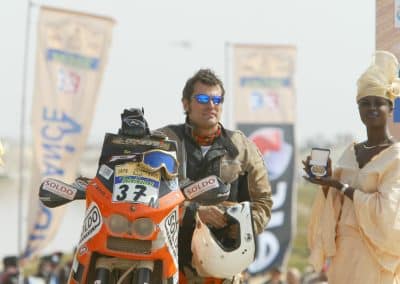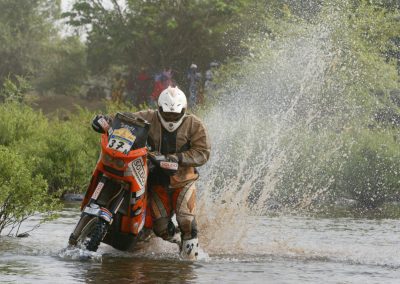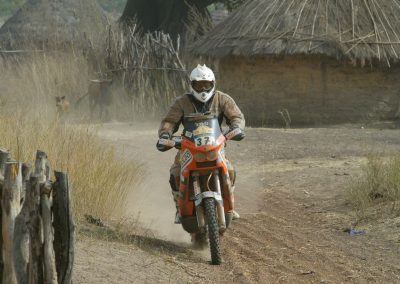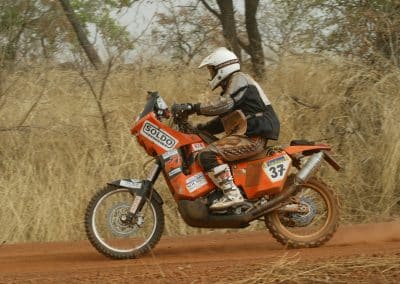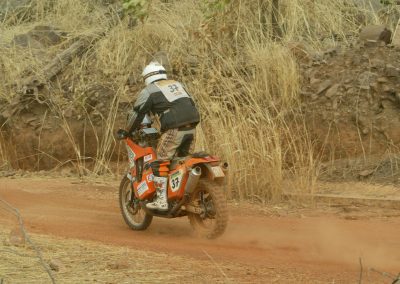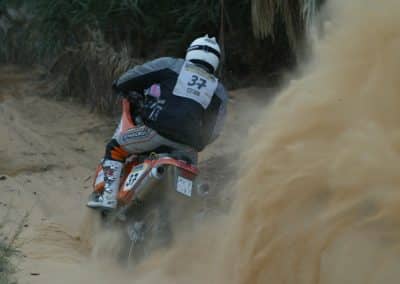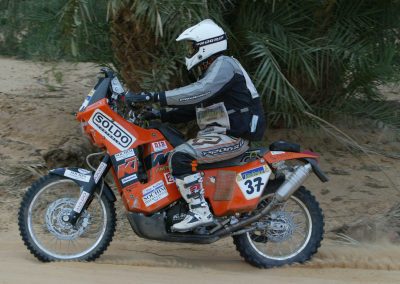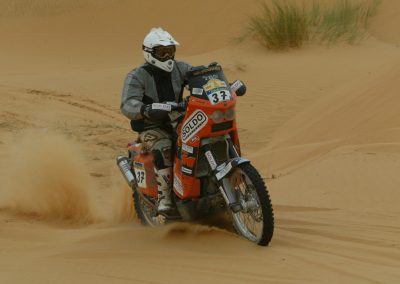DAKAR: THE WORLD’S MOST FAMOUS RALLY
The world’s most famous rally was conceived by Thierry Sabine in 1976, after more than 20 editions with a prologue in Europe and arrival in Dakar, Senegal, moved to South America for 11 years. Since 2020, the rally has been held in Saudi Arabia, where riders of motorbikes, cars, quads and trucks have been able to find the sand dunes characteristic of this competition.
Oscar Polli has contested, and completed, four editions of the Dakar Rally as a rider in the Bike category riding a Ktm in 1997, 1998, 2005 and 2008.
He returned in 2022, this time on a new track in Saudi Arabia, as a co-driver for the historic Team Tecnosport Rally in the Classic Auto category and again in Arabia in 2023 as a coach for two bikers.
DAKAR 2024 – MISSION 1000
The Mission 1000 Dakar project with Tacita was a great technical experience for me within a world I already knew. Over the years I have carried out various tests with different electric bikes, but never as stressful as the Dakar can be.
The Dakar is the most extreme racing and testing ground to test and develop all types of engines, and Tacita was fully committed from the start. I found myself riding as the first Italian rider, on the first Italian electric motorbike developed for rallying, in the first Dakar dedicated to these engines, not an easy task.
The Dakar 2024 routes for the Mission 1000, although shorter, were the same as those of the ‘modern’ Dakar, with an extremely difficult prologue both in terms of navigation and route, immersed in an erg of dunes and soft sand. Then it continued on increasingly difficult routes through immense and complicated dunes that challenged all-electric vehicles and even more so the motorbikes.
The biggest difficulty was the battery autonomy in the stages of high dunes and soft sand contested in the middle hours of the day: all the vehicles taking part in Mission 1000 had problems, some stopping after 60 km, some after 80 km and some 4 km before the finish. For my part, despite everything, I was able to test: chassis handling, weight, range, acceleration and development of the power delivery to be able to float best in sand or on trails with little grip. Incredibly, the range on hard ground is very high, almost 180 km, and we are talking at least three hours on the bike, while on dunes and sand tracks everything changes.
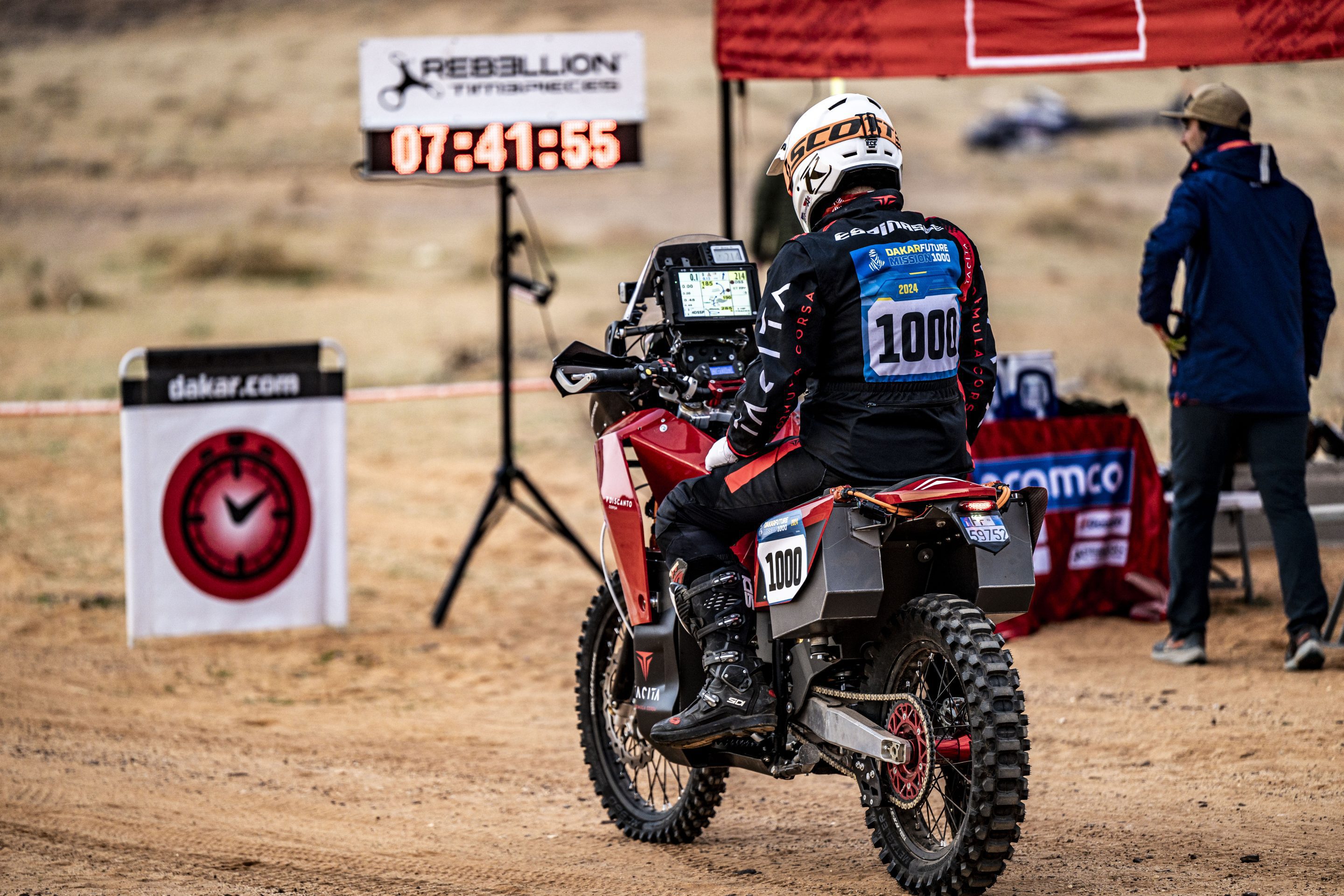
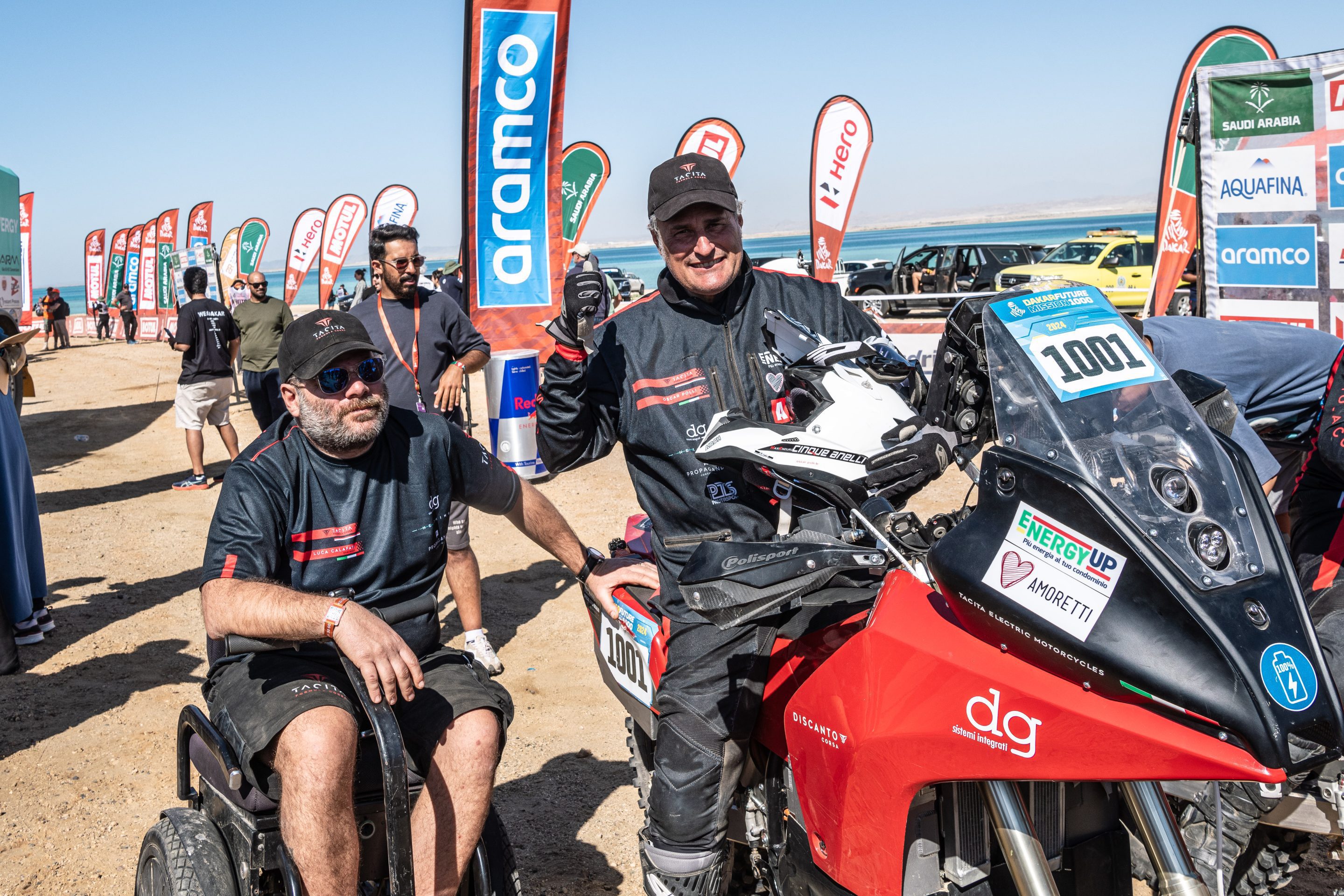
Navigation in this Dakar was very difficult and complex, with changes of pace and very close road book notes, only to change with cap notes off the track, between narrow canyons and rocky cliffs where it was easy to take the wrong route, with the fear of missing the validation waypoint, resulting in a penalty.
In this Dakar, all the riders (except for the first 20 or so) made use of the new digital road book, which is easy to use but full of a lot of information that is badly divided among them. For my part, I really enjoyed using this instrument and it is very performant even during the day in the sun. While at night it becomes more difficult to read due to the backlight dazzling the driver. Now, with the experience of the Dakar mission 1000, the Tacita can develop a motorbike that is manoeuvrable, with low weight and a high-performance delivery aided by the mechanical gearbox and clutch. Unfortunately, due to the various problems that arose and testing the bike in the field, I was not able to finish all the stages, but the Dakar is still a great event with its pros and cons, where it is still the man who always makes the difference.
Last but not least, I would like to thank my sponsors who supported me throughout the competition and allowed these technologies to take important steps towards an increasingly sustainable future.
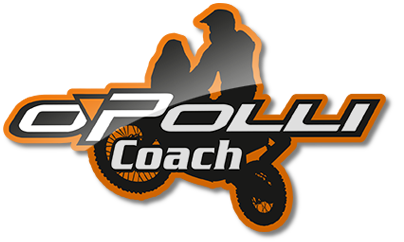
WORLD RALLY RAID CHAMPION 2008, WINNER OF THE AFRICA ECO RACE 2012 AND ITALIAN GOLD MEDAL FOR ATHLETIC VALOUR, HE HAS PARTICIPATED IN VARIOUS AFRICAN MARATHONS SUCH AS THE DAKAR, THE TUNISIA RALLY, THE PHARAOHS RALLY…



